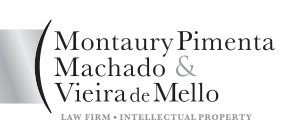In the middle of last year, the World Intellectual Property Organization (WIPO) released its global innovation index, which is based on criteria such as the spending on scientific publications and education, and patent applications of the surveyed countries. With 1.3 million applications and more than 400,000 patents granted, China took the lead. In second place is the US, with more than 600 thousand patent applications and 303 thousand patents granted. Brazil ranked 69th, with about 22 thousand patent applications analyzed and four thousand patents granted. Why are we so low in the world innovation ranking while being the 9th largest economy in the world?
It is clear that structural issues, such as education, political climate, infrastructure and the business environment, among others, explain the Brazilian backwardness, but the WIPO study is an indicator that intellectual property is a first-rate item in the growth of companies and in the economies of countries, for its role as a guarantor tool of scientific and technological progress.
According to WIPO, it is no coincidence that in the ranking of companies that most filed patent applications, Chinese companies Huawei, ZTE and BOE Technology, US companies Intel and Qualcomm and the Koreans Samsung and LG are at the top of the list. “Brazil has not yet awakened to the fact that intellectual property is defining the economic growth and development of any country”, says Luiz Edgard Montaury Pimenta, president of the Brazilian Intellectual Property Association (ABPI).
Other nations, such as China, have already woken up. Despite all its shortcomings, the protection of intellectual property in the Asian country has been improving: as companies issue more patents, the more they need to protect them. It is no wonder that in the United States intellectual property is one of the main fronts used by President Donald Trump in the commercial battle against the Chinese. It should be noted that, apart from the tariff war between the two countries, China has removed from the agreement the item that included the acceptance of US requirements on intellectual property, access to financial services markets and technology transfer, among other issues. “Brazilian companies are unaware of the advantages of protecting their innovations, patents and trademarks”, says economist Antônio Márcio Buainain, author of the study “Intellectual Property, Innovation and Development: Challenges for Brazil,” carried out at the request of ABPI.
The perception of companies on the advantages of protecting their intangible assets often stumbles upon the regulatory system itself. In fact, despite recent improvements, such as new hires and the incorporation of information technology to procedures, the Brazilian Patent and Trademark Office (BPTO) still takes an average of 11 years to grant a patent, while in Spain, for instance, the maximum period is three years. If the examination carried out abroad for patent applications via PCT (being the vast majority) had been used by the examiners, productivity could reach much better indexes. That explains the delay of the examinations and the backlog of 218 thousand patents pending examination in the institute, which the new government promised to eliminate.
On August 27, at ABPI’s XXXIX International Congress, issues related to the topic will be the focus of “Panel 8 – Patents: Technological Trends and Examination Paradigms”. Click here to view the complete program.
Fonte: ABPI Newsletter




